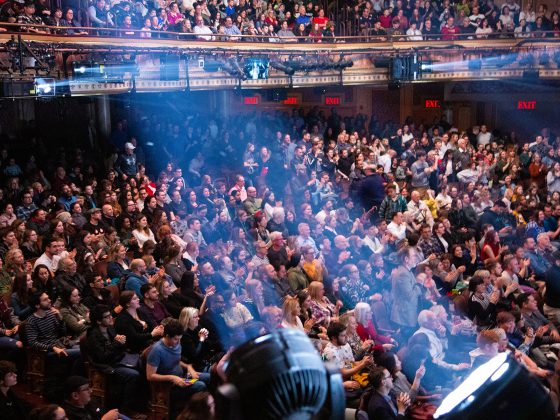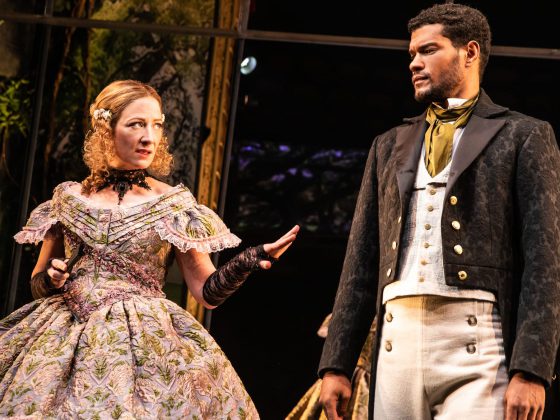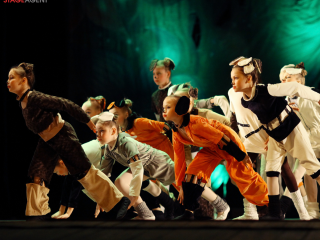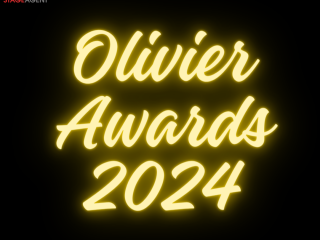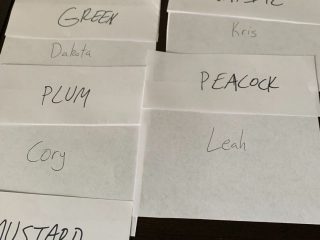Like other written and artistic property, plays and musicals generally fall into two categories: licensed and public domain. Public domain shows are available for everyone to read (and usually produce) without charge. Licensed plays and musicals are covered by copyright law. But what does that mean, and what is protected? How does it impact theatre and what do theatre companies need to consider when planning a production?

Copyright–to varying degrees–has existed since the origins of the printing press. Essentially, it determines who has the right to copy a work. However, official and consistent copyright law for written works wasn’t enforced until the late 1800s. In 1909, Congress revised the Copyright Act to include all authored works (fiction, plays, music, essays, and more). Today, there are several types of intellectual property rights that cover a wide range of materials, from jpeg images to NFTs to traditional books.
Just as we have copyright, we also have the public domain–which is basically anything not protected by intellectual property laws. But copyright also has an expiration date, and works enter the public domain every year. This year, anything first published before 1926 is now public domain in America–including plays, novels, poems, sound recordings, and movies.
If you’re looking for inspiration for a show in the public domain, why not check out StageAgent’s listing of show guides with full scripts included? Most of these are shows currently in the public domain.
But how does this impact theatre? If a work is not in the public domain, it is protected by intellectual property. Professional and amateur playwrights often work with a literary or theatrical agent, and may collaborate with a theatre company, to bring a new work to the stage and publication. Once the show is copyrighted, it is owned by the creator and copyright holder–for example, the writer and their publishing house have exclusive rights to copying, sharing, or presenting the material.
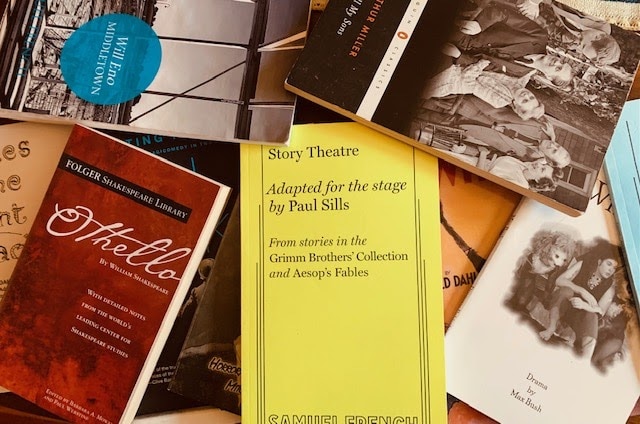
In theatre, licensing companies manage copyrighted scripts. If a theatre company wants to present a play, they must apply for the rights to do so. There are some variations to the process, but the standard application usually considers the following factors to determine licensing permissions, royalties, and any fees:
- What is the show? Musicals are traditionally more expensive to produce than plays. Plays by established and canonical writers (like Tennessee Williams or Arthur Miller) can cost more as well.
- What type of theatre will be producing the show? There are many types of theatre companies, and those types can impact cost. Professional vs. amateur, commercial vs. non-profit, school vs. community–these are all qualities that licensors consider.
- When and where will the show be produced? To avoid multiple productions of the same show happening at the same time in the same city, many licensing companies have date and distance restrictions.
- What is the ticket price, how many performances are there, and how many tickets will be sold? This factor tends to be more relevant for musicals, and can greatly impact the cost of the licensing and royalties.�
When a performance license is granted, the theatre company signs a contract that they will uphold the requirements of the copyright and performance, from marketing and publicity to casting to returning materials.
After the theatre company applies for a performance license, and it is approved, they are sent a contract which must be returned with either a security deposit or the full cost of licensing (including royalties, rentals, and other fees). If the theatre company is renting materials, they usually receive them 8-10 weeks before their production’s opening night. (Following the production’s closing night, the theatre has a few weeks to return the borrowed materials before any fines are charged.) Once the contract is signed and active, a theatre company and the licensor are bound to uphold it. If the theatre company must change dates, venues, or ticket prices, they are obligated to update their contract with the licensor, as it could change the licensing or royalty fees.
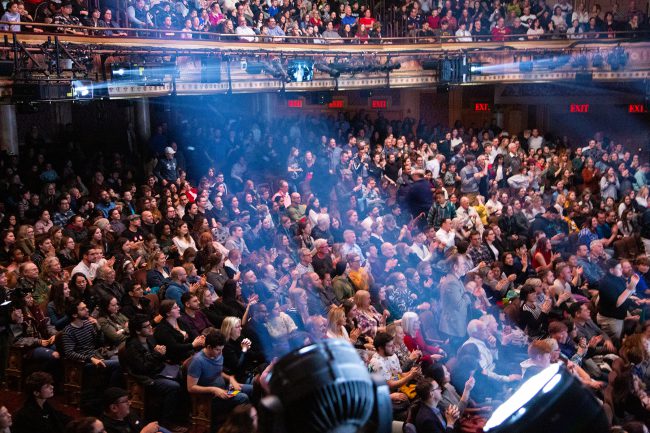
Another type of licensing common in performance venues is a “blanket license.” Most often applicable to recorded music, a blanket license allows a user to perform any of the music within the licensors collection. ASCAP (American Society of Composers, Authors, and Publishers) and BMI (Broadcast Music) are the two biggest catalog holders. When venues play pre-show or intermission music, they are often relying on their blanket license to do so legally.
Through copyright and licensing, theatre artists recognize the work of writers, composers, librettists, and other creators. Applications and contracts may seem like hoops and hassle and a lot of paperwork, but protecting and honoring intellectual property is a core value for artists.
If you’re planning your next production, there are lots of factors to consider. But don’t let that put you off!. The process is usually relatively simple and licensing companies are there to help. Happy planning!

